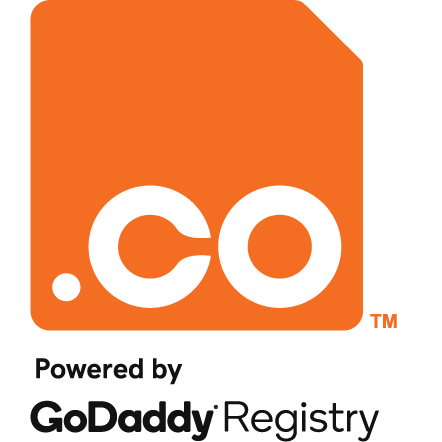
Hey there, .COers! Welcome to our latest installment in our SEO in a Week blog post series! This is the 2nd post in our “SEO In A Week” blog series – providing you with all kind of helpful info to help you be your SEO best. Today, we’ll be talking about links, so go ahead and get comfy as we delve into the nitty-gritty of link building!
Note: It’s best to have already read our last “SEO In a Week” post on how design and build an SEO-friendly website before proceeding with link building.
Why Are Links Important?
One of the ways that search engines go about gauging the authority and strength of a website is by taking a look at who links back to that site. Although many things have changed in the world of SEO—including the intricacies of a good link strategy and what types of links are best—one thing that hasn’t is that links are still a very important part of SEO.
Think of links as votes of confidence to your website. Wouldn’t you want a strong, highly relevant and established website linking back to your site instead of a spammy, weak site? Of course you would!
What are Links?
Quite simply, in a broad sense of the word, “links” – also called “backlinks” – are counted as a site that links back to your website. “Internal linking” is the process of linking to other internal sites on the same website – i.e., linking from an article page to the homepage.
Types of Links
There are several different classifications of external links.
- Social Links
Social links are simply links back to your website from social media website such as Facebook and Twitter. Other social media sites include YouTube, Instagram LinkedIn, Google Plus, Stumble Upon, Digg and Reddit. - Editorial Links
Editorial links – also called “natural links” – are classified as links back to your sites that happened naturally. These are the strongest types of links because they are happening organically. Sites are linking back to your website purely because of its great content and material! - Manual and Outreach Links
The term “outreach” describes the process of reaching out manually to webmasters to request a link. Examples include guest blogging and reviews. One can also throw types other types of links in this group – such as press release links and submission links. Submission links are described as links that have been acquired by a submission process – such as submitting a site to a directory. Other types of links in this group include message boards and forums.
How do Search Engines Judge Links?
Search engines look at a variety of factors when judging the strength of a link.
- Authority
Authority describes several different criteria—how old/established a site is, how many, the content, and what type of links they have (also called a link profile). - Relevance
Is the site relevant in subject matter to your website? If a website’s basis is similar in subject matter to your website, this is typically seen as a plus. - Freshness
Search engines love fresh content. Thus, a site that updates their content often—as well as continues to gain new links back to them–typically is viewed as more authoritative. - Activity
The term “social signals” describes the type of engagement a website has with social media websites. This goes hand in hand with freshness, and search engines weigh this positively into how they judge a website.
Anchor Text
The term “anchor text” is defined as the verbiage used in the link pointing back to you. The anchor text for the following link is “.CO Domains”. Anchor text which uses keywords similar to what your site is about used to be highly important in the overall effectiveness of a link – however, with recent algorithm changes such as the Penguin Update, it is now more important to have a natural anchor text profile. For example, if you have a website selling red widgets, you’d most likely try and have an anchor text profile which includes a variety of different anchor text terms – such as “cool red widgets”, “cheap red widgets”, “widgets”, and maybe even “click here”.
The Content Element
Creating Link-Worthy Content
The best way to obtain great links back to your site – great editorial links – is to create awesome, well-written content that people will naturally want to link back to. In addition, you will also be beefing up your site and making it stronger, so there are multiple benefits. So, start writing! Sounds easy, right?! Well, it can be easier said than done!
The best way to go about creating a content strategy is by brainstorming. What type of content do you think your site visitors would like? What type of content do you find valuable? What are some content ideas based around your site’s subject matter? The more heads, the better – so enlist your co-workers to help you brainstorm some content ideas.
Types of content include:
- Resources & Articles
Content that your site user will find highly valuable and useful - Blogging
Frequent blog posts about related subject matter and topics such as breaking news and trends and tips & trends - Case Studies & Testimonials
Let your work shine and showcase the praises your customers and/or site users have given - Videos
Useful and interesting videos about related topics - Tools
Valuable tools that are useful to your site user
Feeling overwhelmed? Don’t be – just come up with a basic project plan. Create a spreadsheet with all of your content ideas you’ve generated and divvy them up over time. For example, devote a day a week to building new content – articles, blog posts, you name it – and devote a day a month to more time-intensive content such as info-graphics or videos. Wordsmithing not your strong suit? You may also want to consider hiring a copywriter or intern to help you out!
We will be devoting an entire post to Content, so be sure to keep stopping by!
Content Strategies
So, you’ve got your to do list for the content element – what about the rest of the link building? What types of links “work”? Fear not – we’re here to help you get some ideas and inspiration for developing your own strategy. Below you will find a rundown of various link building methods and what they are.
- Friends and Family
Get by with a little help from your friends! Start your link building strategy at home by asking for links from your friends, family, colleagues, past colleagues, neighbor, dog… oh wait, Fido probably doesn’t have his own blog yet. Anyway, you get the picture! Ask for a link back to your site from their website or blog – be sure to ask for links leading not only to your homepage, but also your deeper pages (i.,e., your blog, your product pages, etc.) - Content and Blogging
After you’ve started implementing your new content strategies, spread the word and make those your link targets, instead of always just linking back to the homepage. Also, try a Friday weekly roundup post – create a post centered around your favorite blog posts in your particular field from the week. Write about why you liked the post, what it was about, and link back to it – and Tweet it, Like it and Google + it. Then, let the blogger now that you have linked to them and ask if they will link back to your roundup post. You may get some links! - Contests & Giveaways
People love free stuff! That’s universal. Capitalize on this by running a weekly or monthly contest. Run a blogger contest. For example, say you sell pet supplies – host a contest in which the participants can qualify for your grand prize by writing a blog post on their site writing about why they love their pet. Write a blog post about the contest, post it on your Facebook page, and ask the participants to like the post and post something in the comments. Kapow! You’ve created links, content, and social buzz all in one! - Guest Blogging and Writing
Guest blogging describes the process of writing an article or blog post for another site. This technique involves finding good guest matching prospects, manually contacting them and asking about their guest blogging process, and writing a great guest post with a link back to your site. This can be a very lengthy process but can yield great links. For an in-depth guide, read this post about guest blogging. - Educational
.EDU sites are still classified as some of the strongest types of websites out there. That makes them wonderful links! There are several educational link building techniques you can explore:- Offer Discounts – Offer a discount code, like 10% off your purchase, for students and alumni and post it to the university’s offers page; the code will obviously link back to your site.
- Job and Internship Postings – Create a posting and list on the school’s jobs board.
There are TONS of other great ways to go about getting links to your site. A few more include
- Embeddable content (i.e., badges, infographics, etc.)
- Local links (i.e., local directories, Chamber of Commerce site, etc.)
- Charity sponsorship
- Broken links and grammar mistakes (find broken links and mistakes on websites and ask for a link back to your site)
Developing Your Own Link Strategy
So, now you understand how links work and how a link is judged, you’ve got your to-do list for building link-worthy content, and you’ve got some link building ideas to get you started. Now what?!
Well, now it’s time to prospect.
Prospecting
Prospecting is the process of finding possible link targets by using a set of criteria you’ve established. It can involve using third party tools, competitive analysis, and using special Google search operators to find good prospects. You’re going to want to build a spreadsheet of prospects that you will constantly be updating.
Competitive Analysis
One of the best ways to find link prospects is by checking out the links of your competitors. You can use a tool such as Open Site Explorer and/or methods like doing Google searches with a link: operator (i.e., link:google.com). Check out this great SEOMoz post and video about competitive link analysis. Also, find good prospects by doing Google searches for your key terms. For example, if your site specializes in red widgets, search for “red widgets” and see which sites are appearing in the search results.
Relationship Building & Social Media
One of the very most important components of link building is relationship building. Be involved in the social media space – follow and like the industry influencers and get involved in the conversation. Build relationships and contacts and link to them – keep spreading the link love! In terms of actively using social media for link building, be sure to stop by often – we’ll be devoting an entire post to social media & link building.
Other Tips
Make It Easy to Link Back To You
Make sure your URLs are easily shareable.
Keep It Up
Never stop building! Set aside time each week to devote to your link building strategies.
Link Karma
Building on the note above about relationship building, spread love without expecting anything in return. Give a site/contact a link, a Tweet a Like often, and then one day come back and tell them about some great link-worthy content you created on your site and ask them to help you spread the word.
Network, Network, Network
Are you shy? Well, it’s time to break out of that shell and network! Build an arsenal of contacts and relationships that you can reach out to when you publish new link-worthy content.
Link Building Tools
There are countless link building tools out there. My favorite is the excellent Open Site Explorer by SEOMoz. Buzzstream is also great. If you prefer not to pay for tools, check out this awesome post about how to link build using advanced search operators.
Never Stop Learning
As you might have already noticed, the world of SEO is constantly changing, so be sure to never stop learning. Read up on SEO news, trends, and strategies at blogs like Search Engine Land and SEOMoz. and be sure to check out some of the SEO advantages of having a .CO domain.
If you want more personalized help for your website, then join our free .CO Membership Program. By signing up, you are eligible for all sorts of cool perks, including an SEO consultation from me!




